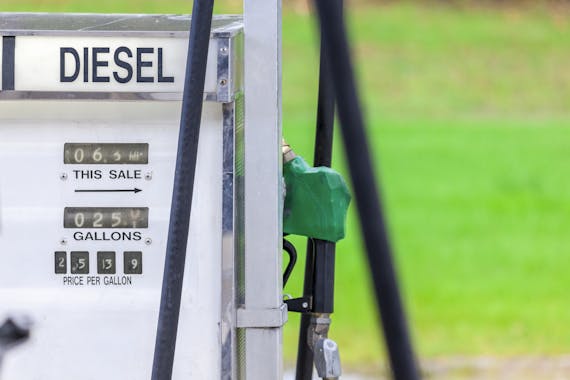When will diesel end?

Diesel cars have been demonised in recent years, with fears about their emissions even leading cities such as Brussels and Bristol to propose banning them altogether in coming years. So, as sales figures fall, could diesel go the way of the cassette tape and disappear altogether? Is diesel on the verge of extinction?
Why diesel cars became so popular
In the year 2000, diesel-engine cars made up around a seventh of the new car market. By 2011 they were over half. An amazing jump just over 10 years.
A major factor in this huge increase was the government’s 2005 decision to change the way that car tax was calculated, with the bands reorganised to reflect a vehicle’s CO2 emissions. The change was designed to be an incentive for car buyers to choose diesel cars, in order to reduce the amount of the harmful greenhouse gas being pumped out of cars’ tailpipes.
This tax change came at the same time as engineering advances saw average new car CO2 emissions fall by a third (from181.0g/km in 2000 to 120.1g/km in 2016).
The love affair with diesels came to a crashing end in late 2015, though, as the Volkswagen scandal that came to be known as Dieselgate brought new air quality concerns to the fore.
Why diesel cars then became unpopular
The Dieselgate scandal made us question whether diesel cars were as ‘clean’ as we assumed. At the same time, headlines about the UK failing (badly) to meet air quality targets turned our attention to emissions of nitrogen oxides (NOx for short).
NOx became the new CO2 and the planned introduction of clean air azones, such as London’s Ultra Low Emissions Zone (ULEZ), meant that sales of diesel cars fell rapidly. By the end of 2018, manufacturers were selling 38% fewer diesel cars than at their peak.
Is it worth buying a diesel car now?
The first thing to realise is that modern diesel engines, which meet the latest Euro 6 emissions regulations, are so much cleaner than diesels from 10 or 15 years ago. Car companies have developed ways of trapping the soot and tiny particles (known as particulate matter) that are so bad for humans when breathed in. If you buy one of these newer diesels, you won’t have to pay to enter clean air zones in towns and cities.
It's also worth mentioning that diesel cars still emit less CO2 than petrol cars – although the gap between the two is closing, as car manufacturers switch to more efficient smaller engines. They also have better fuel economy, so if you're a high-mileage driver (over 12,000 miles year), it’s still cheaper to run a diesel than a petrol car.
And if you're buying a used diesel car, now is a good time to do it. Lower demand for diesels, combined with consumer concerns about these cars, has meant that prices of used vehicles has been falling steadily for a while.
Dealers are keen to get them off their forecourts and owners want to switch to petrol, so there are bargains to be had, especially for smaller cars. There is still demand for larger diesel cars, though, so don’t expect to make a killing if you’re looking for something along these lines.
When you're buying a used car, it's worth checking which diesel engine standard it conforms to. The Euro 6 standard became mandatory in September 2015: some manufacturers sold Euro 5 cars right up until this date, while others started selling Euro 6 compliant cars well in advance.
Before deciding to buy a car, double-check the information on the cinch listing (it's on the right-hand side of the page, in the Engine and Emission box) to ensure that the car you want to buy is compliant.
Does diesel have a future?
It does – but it's a limited one.
Stricter emissions testing means that only owners of the latest diesels will be able to drive around unworried by new air-quality regulations.
And diesel vehicles aren’t going anywhere anytime soon: there are just under 14 million diesel cars, vans and lorries on the UK’s roads, so it will take some time for them to all be phased out.
There will also continue to be demand for diesel cars among high-mileage drivers, too. Many company cars – for sales reps, for example – will be diesel for the foreseeable future. And car manufacturers will continue to meet that demand, building diesel cars for those customers who want them.
But the end is in sight, as the government has declared that sales of petrol and diesel cars will end in 2040. Some car industry observers think this is ambitious, but either way, in 20 years, there won’t be many diesel cars on sale. They will survive beyond that, but by 2050 they could well be a rarity.
Make searching and staying updated even easier.